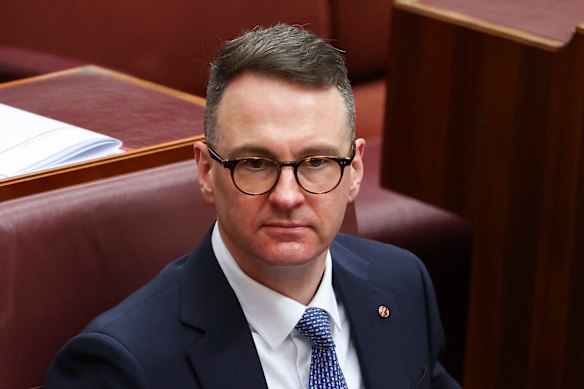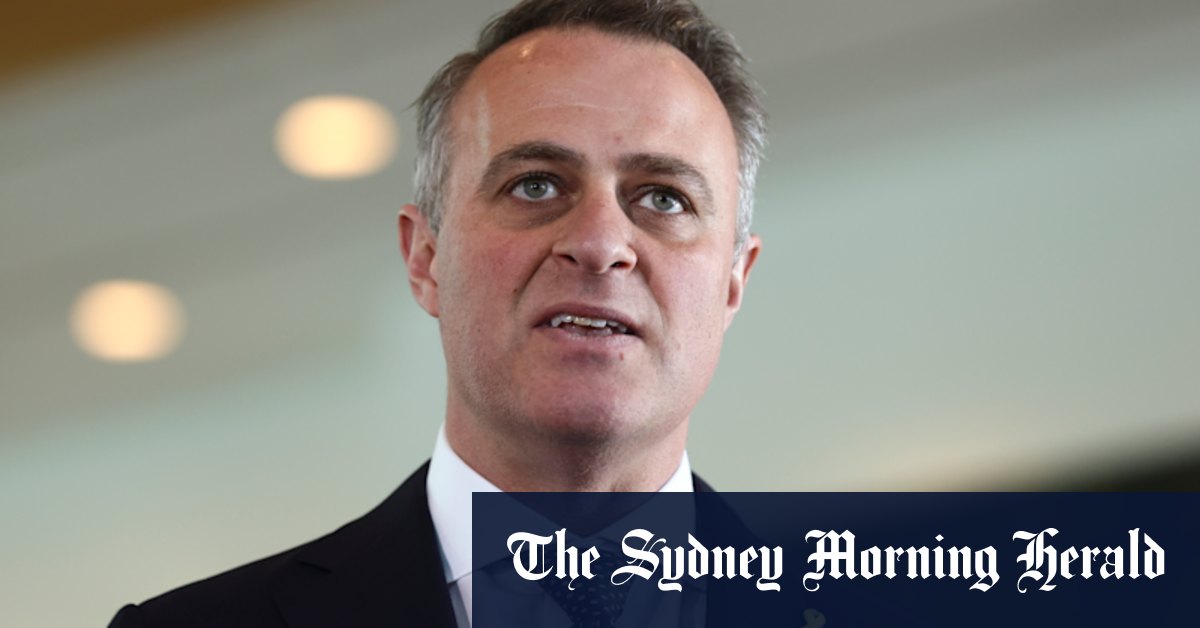At Labor’s caucus meeting, Prime Minister Anthony Albanese said: “Those opposite have torn themselves apart before and are doing it again”, arguing that regardless of scepticism over climate change, investing in renewables and storage was a sensible economic measure.
Wilson’s shadow frontbench colleagues on Tuesday emphasised the importance of cooperation with the Nationals.
Opposition communications spokeswoman Melissa McIntosh warned Australians were fed up with the Liberals’ and Nationals’ internal conflict.
McIntosh said she was optimistic about the Coalition’s future because of the long history of co-operation between the partners despite rumblings of a potential challenge to Ley’s leadership.
“Australians do want us to sort out our issues quite quickly,” McIntosh told ABC Radio National. “They’re disappointed in us – probably could use stronger words than even disappointed – and want us to get our act together.”
McIntosh, who is in the same Centre-Right faction as Sussan Ley, said there was enough goodwill within the Coalition to keep the party together and argued the media was making more of the threats to Ley’s position than was justified.
Loading
“It’s a difficult position. It has brought down previous leaders. It’s not an easy issue for the Coalition to deal with, and we have lost many seats across the country.”
“I think it’s a difficult position for her, but with the amount of consultation, I think we’ll get it right in the end, it may be messy on the way.”
In a crisis meeting on Monday morning, Ley’s top lieutenants in the Right faction argued the net zero tagline had become too toxic to retain in any form, according to sources familiar with the talks not authorised to speak publicly. Ley’s key ally, Centre-Right leader Alex Hawke, claimed he had always been sceptical of net zero.
Opposition housing spokesman Andrew Bragg said Australia had to stick to net zero and that keeping the Coalition together was important, but “not at any cost”.
But in a signal that his faction is open to compromise, Bragg pegged his commitment to the Paris Agreement that he said called for net zero sometime in the second half of this century, rather than by 2050.

Leading moderate Andrew Bragg insists the Coalition retain a net zero commitment in some form, but is flexible on the date.Credit: Alex Ellinghausen
“I don’t see how we could walk away from the Paris Agreement. I don’t see how we can walk away from our commitment to reduce emissions. We would be a pariah state,” Bragg told the ABC.
“Obviously, I support Sussan, and I think we need to show leadership now. We can’t backslide. The people of Australia are relying on us to hold this terrible government to account, and deliver policies which are reasonable alternatives.
“Net zero and the Paris Agreement are not causing the problems in Australia, the problems in Australia have been caused by the Labor Party’s terrible electricity and energy policies.”
Wilson said it was possible to develop a practical energy policy that the whole country could unite behind. Nuclear energy should be revisited, he said.
“What we actually need is mechanisms to get more baseload power into the system if you actually want electricity prices to go down,” Wilson said. “And to do that, you need to make sure that there’s new supply into the future. That’s where nuclear fits in.”
Cut through the noise of federal politics with news, views and expert analysis. Subscribers can sign up to our weekly Inside Politics newsletter.

